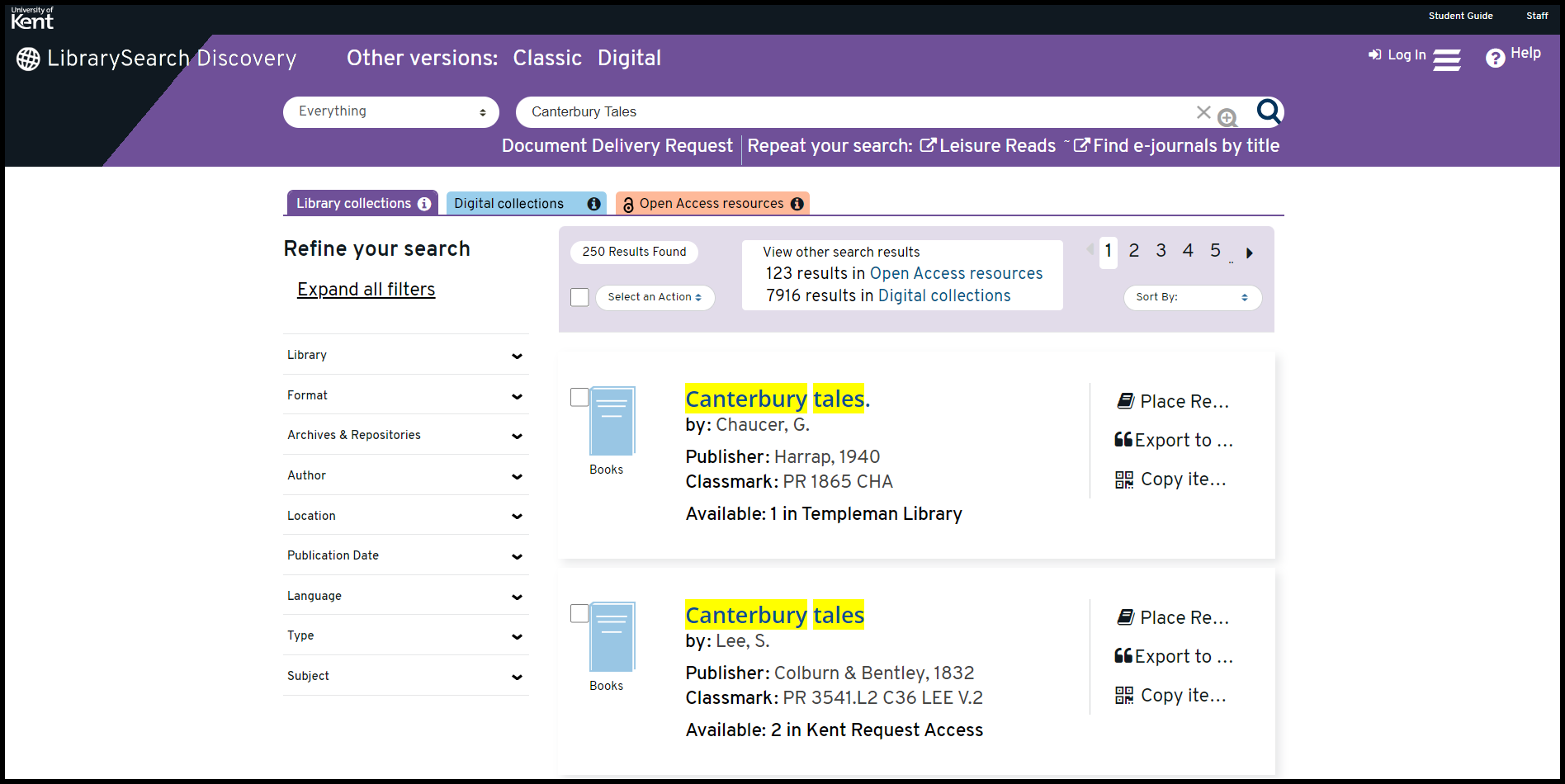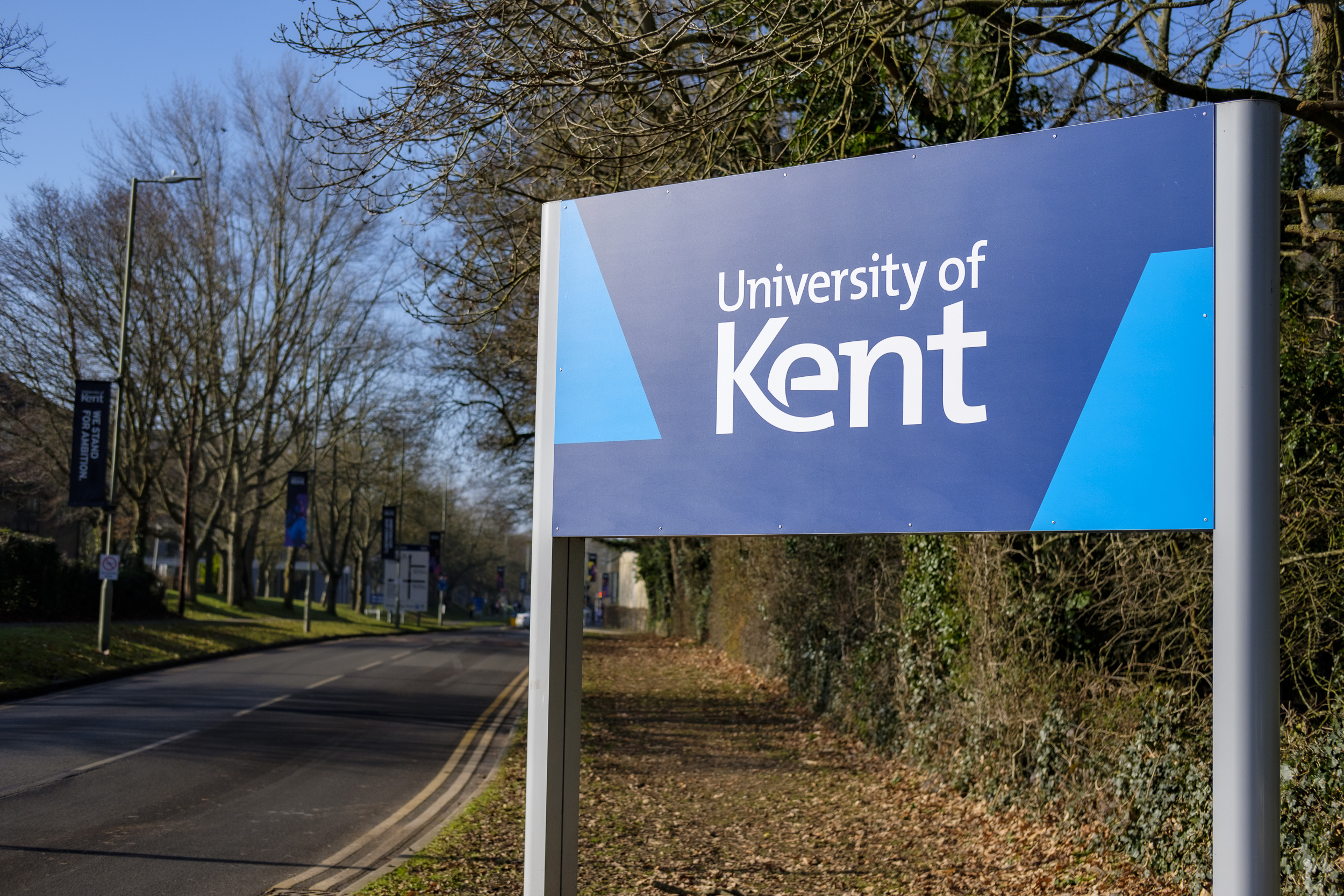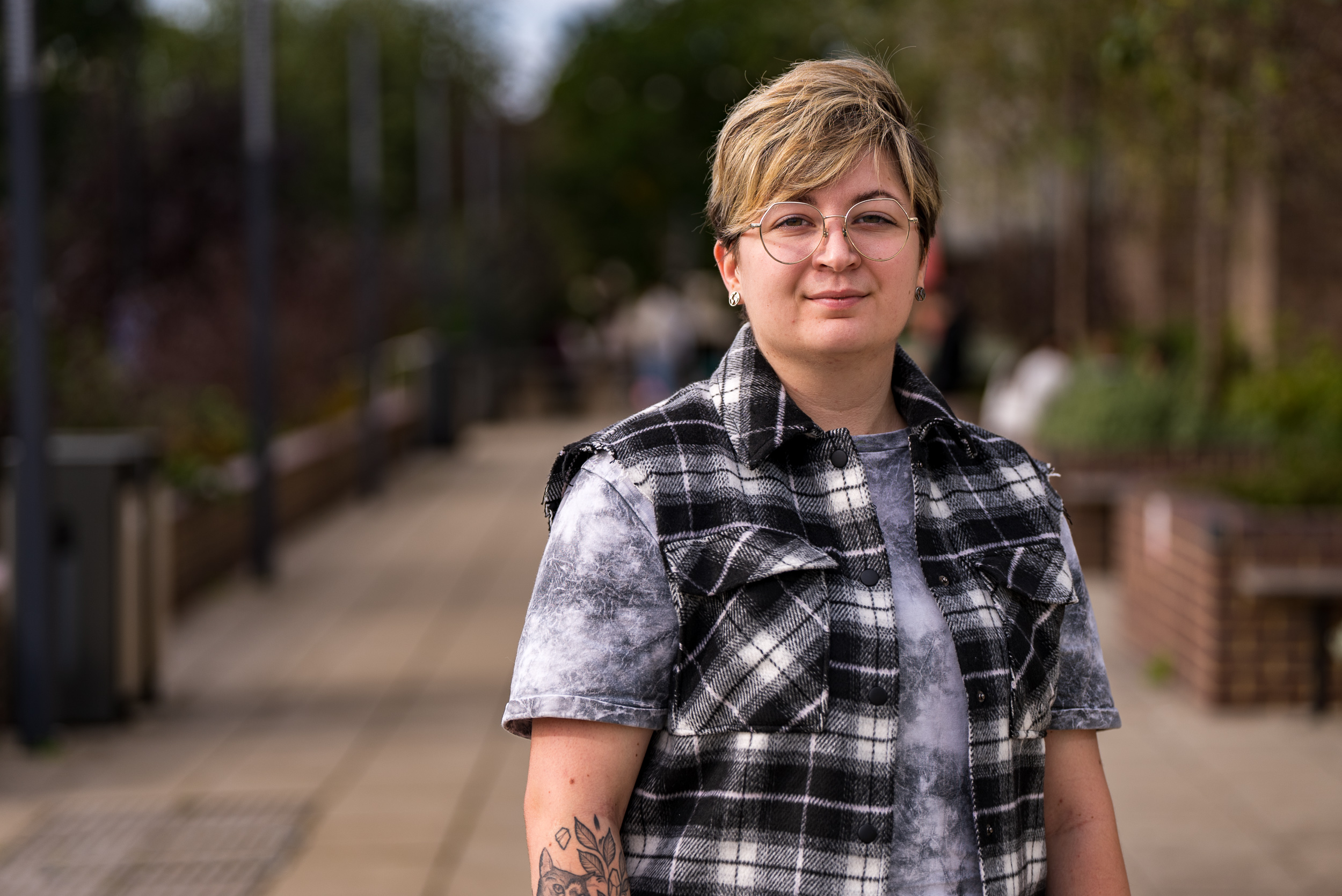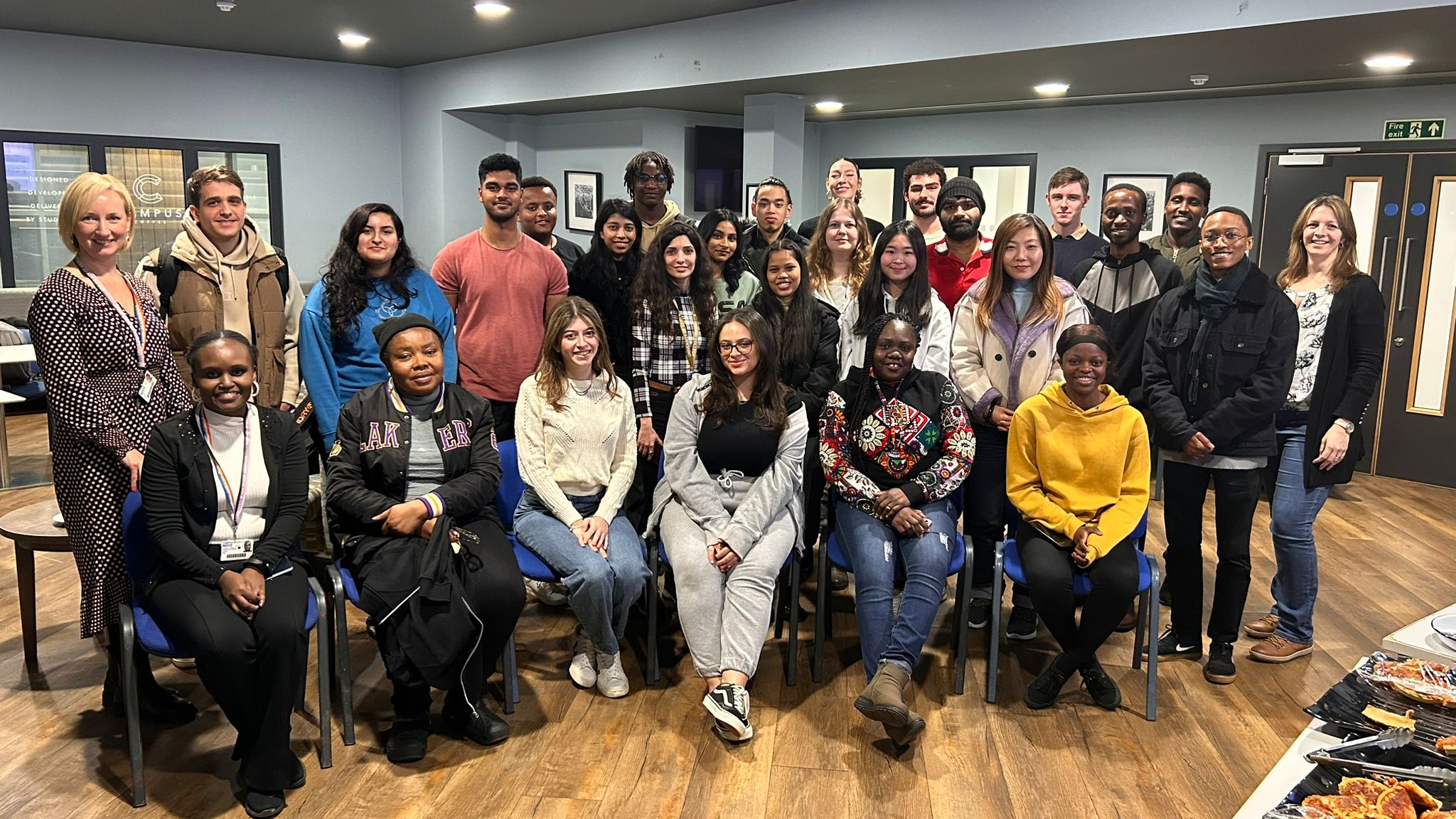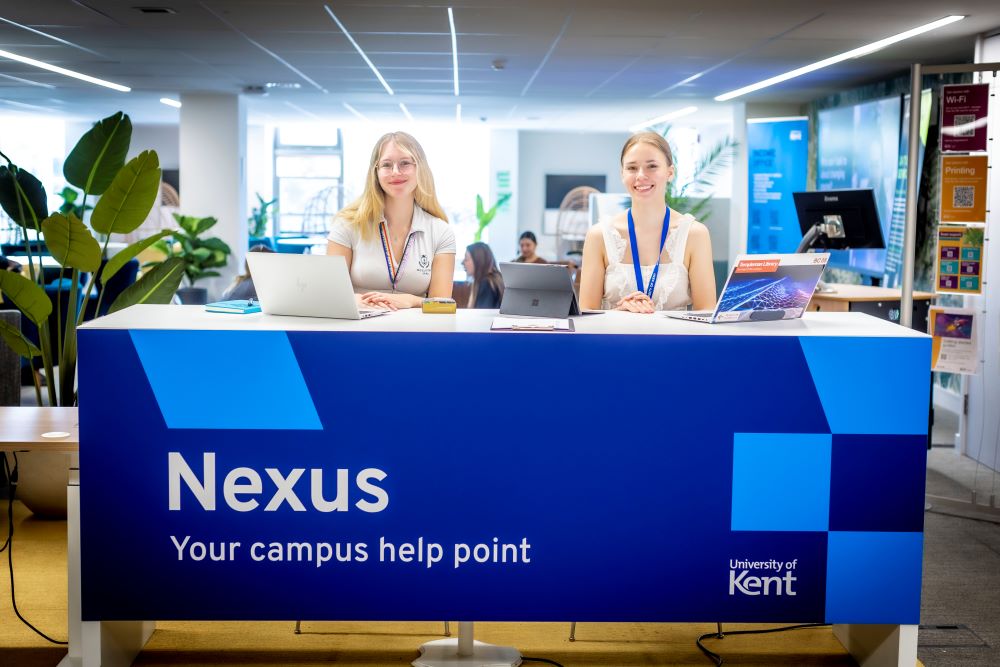We’re thrilled to let you know about some upcoming enhancements to LibrarySearch to help transform your research. From 1 November we’re launching LibrarySearch Discovery, a pilot scheme running from November 2023 until April 2024.
LibrarySearch Discovery will provide access to 50 million+ curated Open Access resources in addition to the extensive collections already available from University of Kent libraries, making it easier than ever to find the right information for your next assignment or research project.
Open Access (OA) resources are freely available, digital content from around the globe. They are part of a wider ‘open’ movement to encourage the free exchange of knowledge and resources to widen access and encourage creativity.
Key benefits of LibrarySearch Discovery
- Free access to 50 million high-quality academic journals, ebooks, datasets and educational resources
- Clearer layout that’s easy-to-use with search results separated by collection type
- Seamless, accessible browsing of collections anywhere, from any device
- Intuitive interface to filter and rank your search results.
- Direct links to available online content regardless of format.
Finding resources will work in exactly the same way, with a simple keyword search in a single search box.
The new search results page will initially show you all relevant items held in our Library collections but you can also view search results from our Digital Collections and Open Access resources just by clicking through the three tabs.
We hope that you’ll like the look and improved functionality of the new LibrarySearch Discovery interface. If you would prefer to use the original LibrarySearch or LibrarySearch Digital you can choose the ‘Classic’ or ‘Digital’ views available at the top of the screen.
What’s next
We are really pleased to be able to share these amazing resources with you and hope that you’ll take full advantage of the opportunities LibrarySearch Discovery provides.
We’ll be demonstrating how to get the most out of Open Access content during the year and in our library training.
We are committed to providing you with the resources you need for your academic study and research, and to working closely with you to ensure we have a successful pilot.
If you have any questions please get in touch: helpdesk@kent.ac.uk


